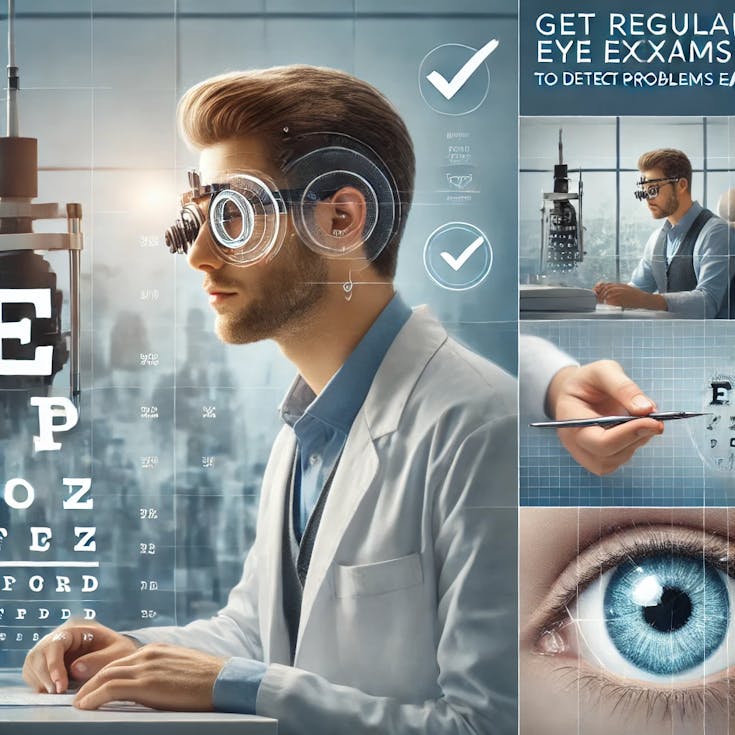1. Follow the 20-20-20 Rule to Reduce Eye Strain
In today’s digital age, prolonged screen time can cause digital eye strain, leading to dryness, headaches, and blurred vision. The 20-20-20 rule is a simple but effective way to give your eyes a break: every 20 minutes, look at something 20 feet away for at least 20 seconds. This helps relax the eye muscles and reduces fatigue. Adjusting screen brightness, using blue light filters, and maintaining proper screen distance can also minimize strain. If you work on a computer, blinking more frequently and using artificial tears can prevent dryness. Making these small adjustments in your daily routine can significantly improve eye comfort and prevent long-term damage.
2. Eat a Nutrient-Rich Diet for Better Vision
What you eat directly impacts your eye health. Nutrients like omega-3 fatty acids, lutein, zinc, and vitamins A, C, and E help maintain good vision and reduce the risk of age-related eye diseases. Leafy greens (spinach, kale), fish (salmon, tuna), citrus fruits, nuts, and carrots are excellent for eye health. Vitamin A, found in sweet potatoes and carrots, is particularly important for night vision. Hydration is also crucial—drinking plenty of water prevents dry eyes. A well-balanced diet not only keeps your eyes in top shape but also supports overall health. Making smart food choices can help protect your vision for years to come.
3. Protect Your Eyes from UV Rays and Blue Light
4. Practice Good Eye Hygiene and Avoid Rubbing Your Eyes
5. Get Regular Eye Exams to Detect Problems Early
Many eye diseases, such as glaucoma and macular degeneration, develop gradually without noticeable symptoms. Regular eye check-ups can help detect issues early, ensuring timely treatment and prevention of vision loss. Even if you don’t have vision problems, it’s recommended to have an eye exam at least once every two years, or annually if you have risk factors like diabetes, high blood pressure, or a family history of eye disease. If you experience sudden vision changes, frequent headaches, or difficulty seeing at night, consult an eye specialist immediately. Routine check-ups are a crucial step in preserving long-term eye health.
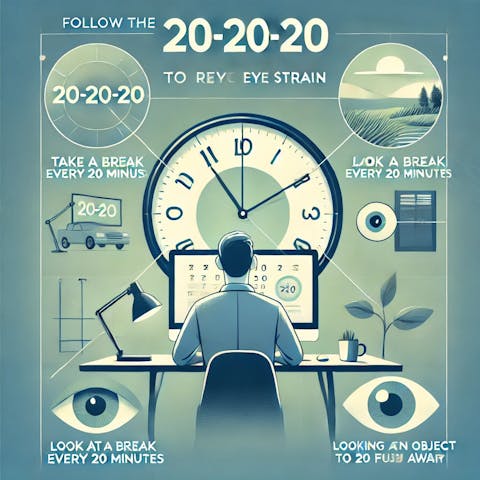
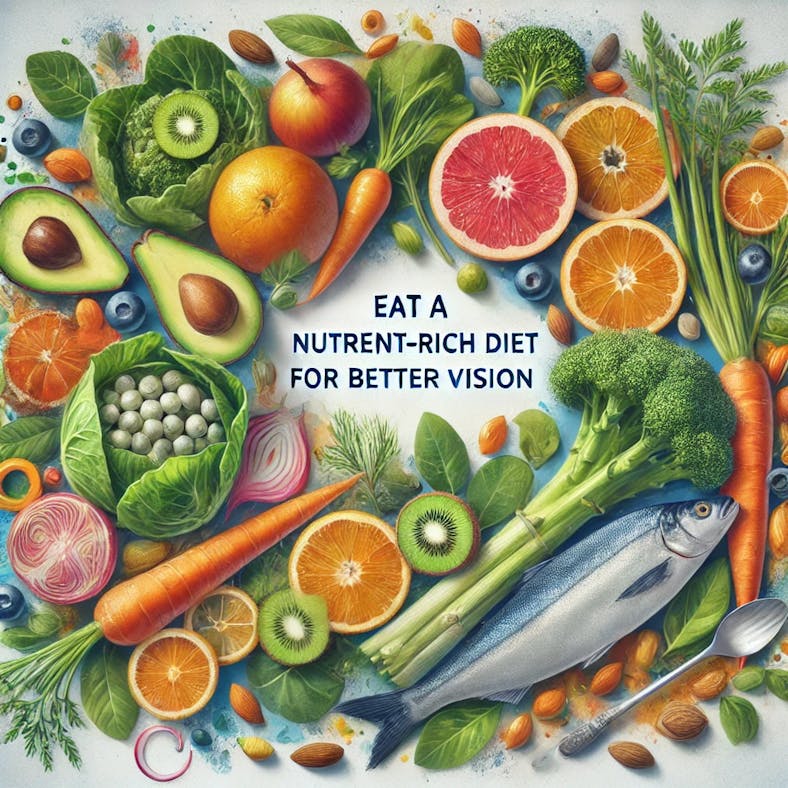
Exposure to harmful UV rays can lead to cataracts, macular degeneration, and even eye cancer. Wearing sunglasses with 100% UVA and UVB protection shields your eyes from the sun’s damaging effects. A wide-brimmed hat can also provide extra protection. In addition to UV rays, blue light from screens can contribute to eye strain and sleep disruption. Consider using blue light-blocking glasses or enabling night mode on digital devices to reduce exposure. If you spend time outdoors or work on screens for extended periods, taking these precautions can help protect your eyes from long-term damage and discomfort.
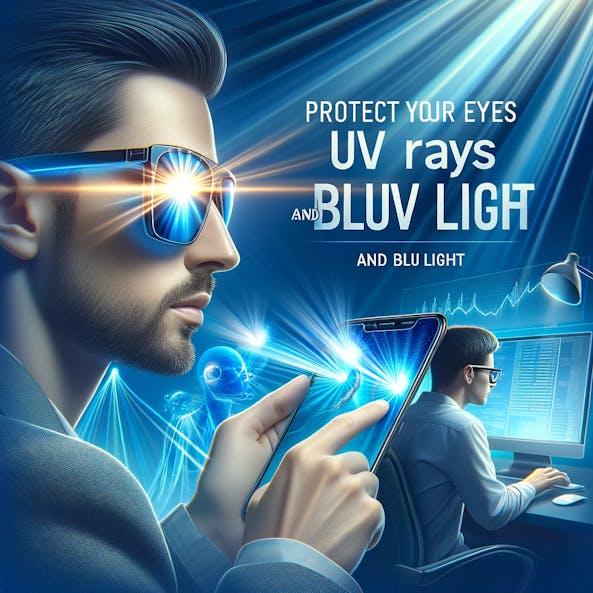
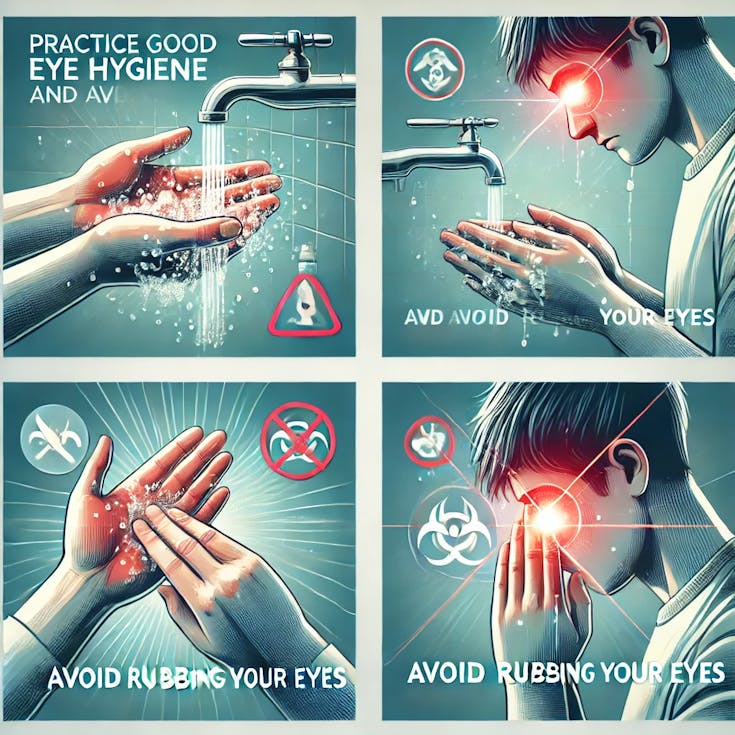
Touching or rubbing your eyes can introduce bacteria, increasing the risk of infections like conjunctivitis. Always wash your hands before handling contact lenses or touching your face. If you wear makeup, remove it before bed to prevent irritation. Using clean towels and avoiding expired eye drops or cosmetics are also crucial for eye hygiene. If your eyes feel itchy or irritated, try using a cold compress or artificial tears instead of rubbing them. Keeping your hands away from your eyes can prevent infections and reduce the chances of developing conditions like dry eye syndrome or corneal abrasions.
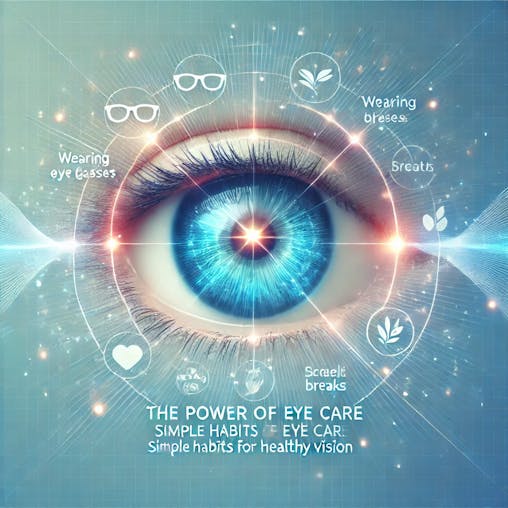
Our eyes are vital organs, yet they are often overlooked in daily self-care. With the rise in screen time, pollution, and harmful UV exposure, maintaining eye health is more important than ever. Prolonged screen use leads to digital eye strain, while environmental factors can cause dryness and irritation. Simple habits, such as taking screen breaks, eating nutrient-rich foods, wearing UV-protective sunglasses, and practicing good hygiene, can help preserve vision.
Regular eye check-ups are essential for detecting issues early and preventing long-term damage. Prioritizing eye care not only improves daily comfort but also protects against serious conditions like cataracts and macular degeneration. Small efforts today ensure better vision for the future.
The Power of Eye Care: Simple Habits for Healthy Vision
1. Follow the 20-20-20 Rule to Reduce Eye Strain
In today’s digital age, prolonged screen time can cause digital eye strain, leading to dryness, headaches, and blurred vision. The 20-20-20 rule is a simple but effective way to give your eyes a break: every 20 minutes, look at something 20 feet away for at least 20 seconds. This helps relax the eye muscles and reduces fatigue. Adjusting screen brightness, using blue light filters, and maintaining proper screen distance can also minimize strain. If you work on a computer, blinking more frequently and using artificial tears can prevent dryness. Making these small adjustments in your daily routine can significantly improve eye comfort and prevent long-term damage.
2. Eat a Nutrient-Rich Diet for Better Vision
What you eat directly impacts your eye health. Nutrients like omega-3 fatty acids, lutein, zinc, and vitamins A, C, and E help maintain good vision and reduce the risk of age-related eye diseases. Leafy greens (spinach, kale), fish (salmon, tuna), citrus fruits, nuts, and carrots are excellent for eye health. Vitamin A, found in sweet potatoes and carrots, is particularly important for night vision. Hydration is also crucial—drinking plenty of water prevents dry eyes. A well-balanced diet not only keeps your eyes in top shape but also supports overall health. Making smart food choices can help protect your vision for years to come.
3. Protect Your Eyes from UV Rays and Blue Light
4. Practice Good Eye Hygiene and Avoid Rubbing Your Eyes
5. Get Regular Eye Exams to Detect Problems Early
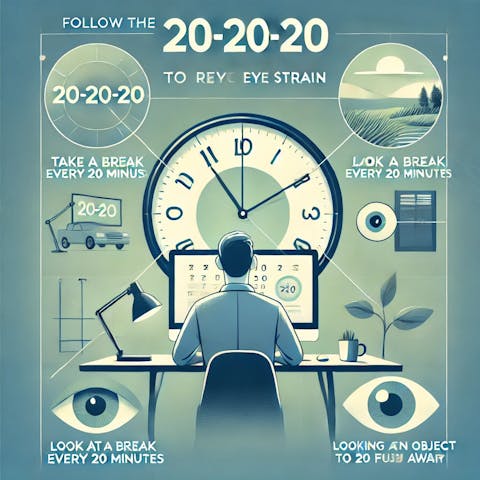
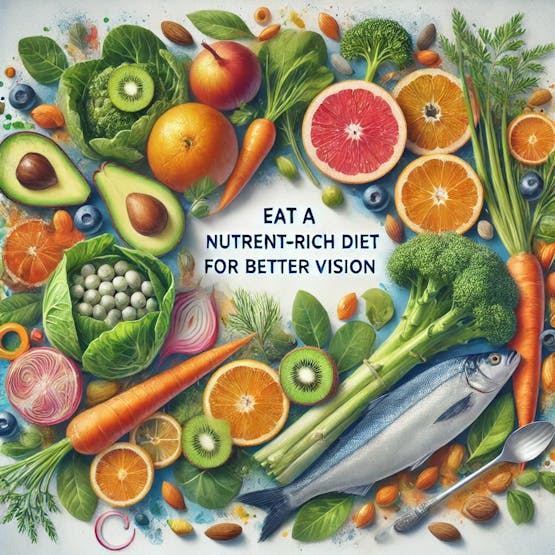
Exposure to harmful UV rays can lead to cataracts, macular degeneration, and even eye cancer. Wearing sunglasses with 100% UVA and UVB protection shields your eyes from the sun’s damaging effects. A wide-brimmed hat can also provide extra protection. In addition to UV rays, blue light from screens can contribute to eye strain and sleep disruption. Consider using blue light-blocking glasses or enabling night mode on digital devices to reduce exposure. If you spend time outdoors or work on screens for extended periods, taking these precautions can help protect your eyes from long-term damage and discomfort.
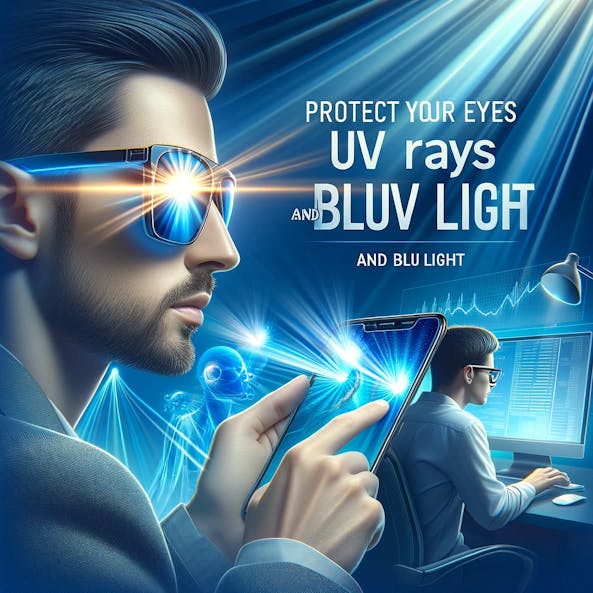
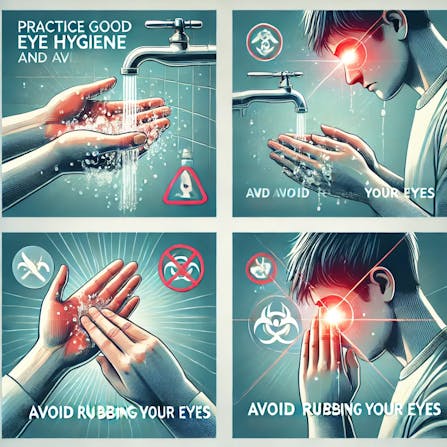
Touching or rubbing your eyes can introduce bacteria, increasing the risk of infections like conjunctivitis. Always wash your hands before handling contact lenses or touching your face. If you wear makeup, remove it before bed to prevent irritation. Using clean towels and avoiding expired eye drops or cosmetics are also crucial for eye hygiene. If your eyes feel itchy or irritated, try using a cold compress or artificial tears instead of rubbing them. Keeping your hands away from your eyes can prevent infections and reduce the chances of developing conditions like dry eye syndrome or corneal abrasions.
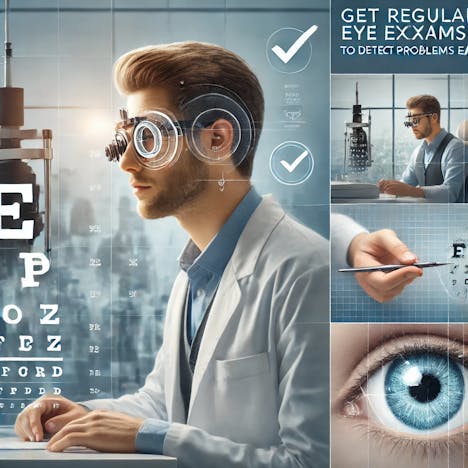
Many eye diseases, such as glaucoma and macular degeneration, develop gradually without noticeable symptoms. Regular eye check-ups can help detect issues early, ensuring timely treatment and prevention of vision loss. Even if you don’t have vision problems, it’s recommended to have an eye exam at least once every two years, or annually if you have risk factors like diabetes, high blood pressure, or a family history of eye disease. If you experience sudden vision changes, frequent headaches, or difficulty seeing at night, consult an eye specialist immediately. Routine check-ups are a crucial step in preserving long-term eye health.
This site stands alone, with no ties to Google, Inc. or YouTube, though their names may echo in the digital winds.
Knowledge flows here, a river of wisdom meant to guide and inspire. Yet, let caution be your compass—what you learn is but a light, and only a trusted professional can chart the course of health and well-being. Walk this path with curiosity, but seek counsel where it matters most, for wisdom thrives when guided by care.
Disclaimer
This site stands alone, with no ties to Google, Inc. or YouTube, though their names may echo in the digital winds.
Knowledge flows here, a river of wisdom meant to guide and inspire. Yet, let caution be your compass—what you learn is but a light, and only a trusted professional can chart the course of health and well-being. Walk this path with curiosity, but seek counsel where it matters most, for wisdom thrives when guided by care.
Disclaimer
